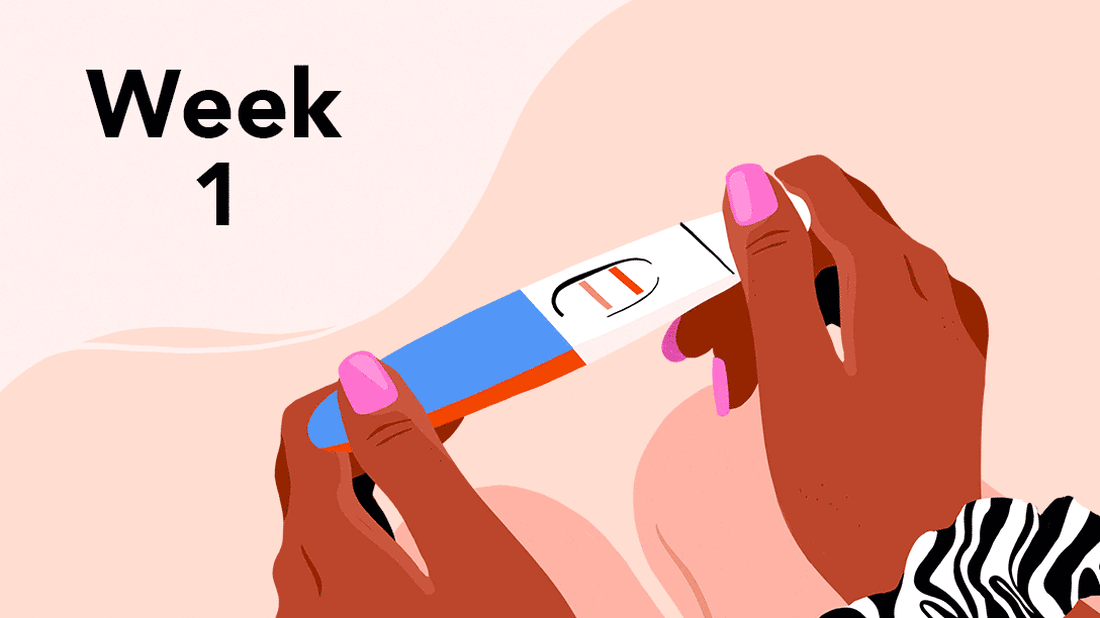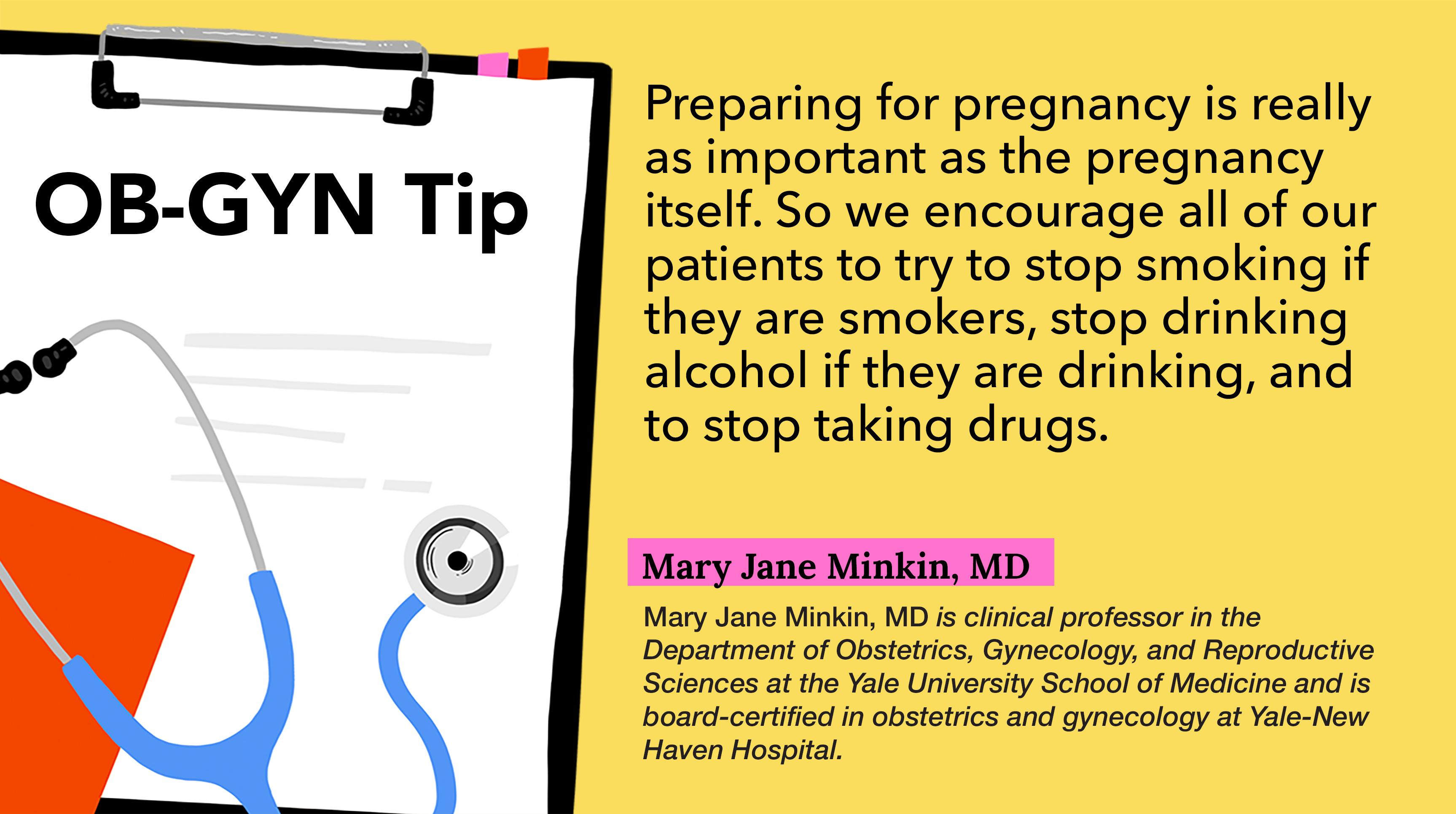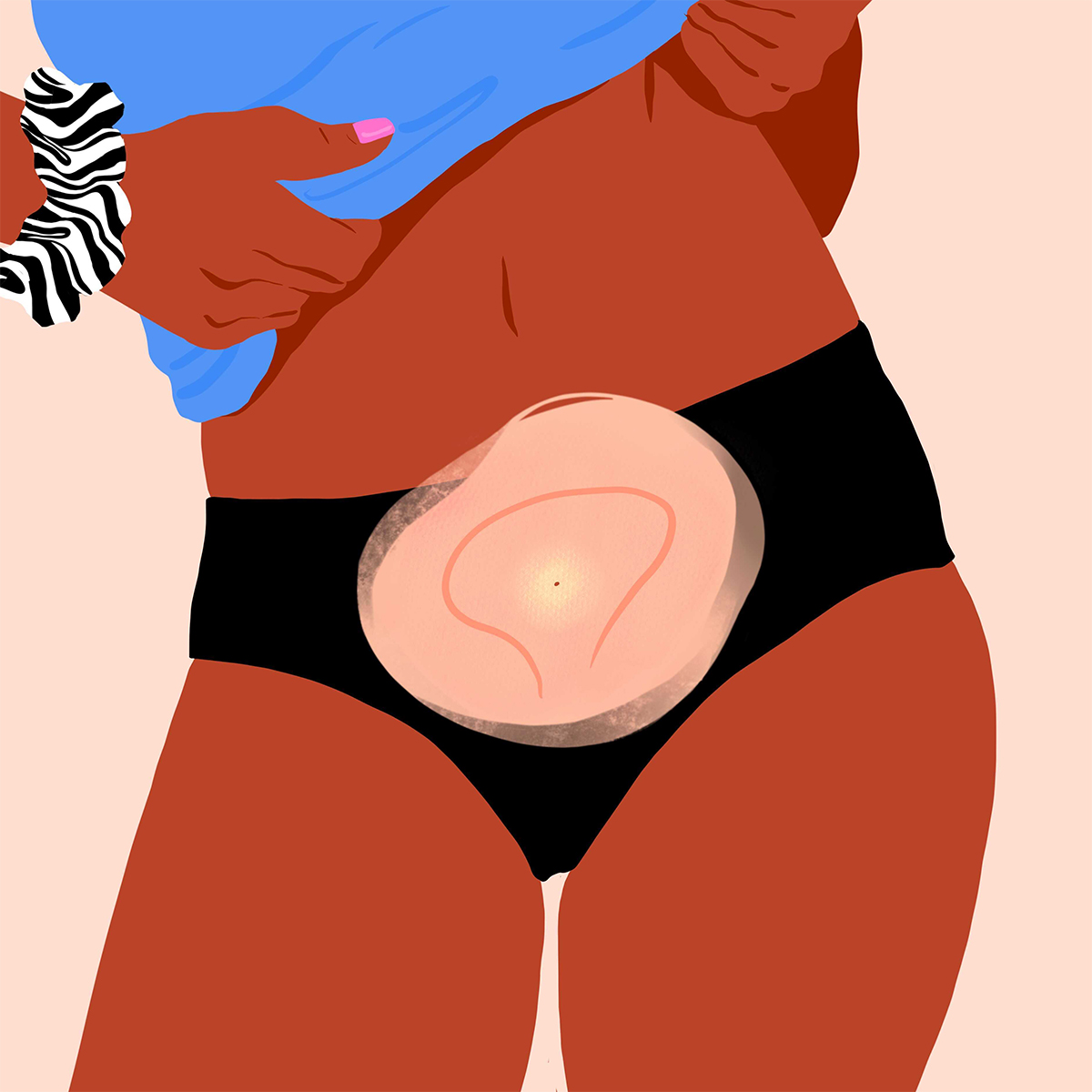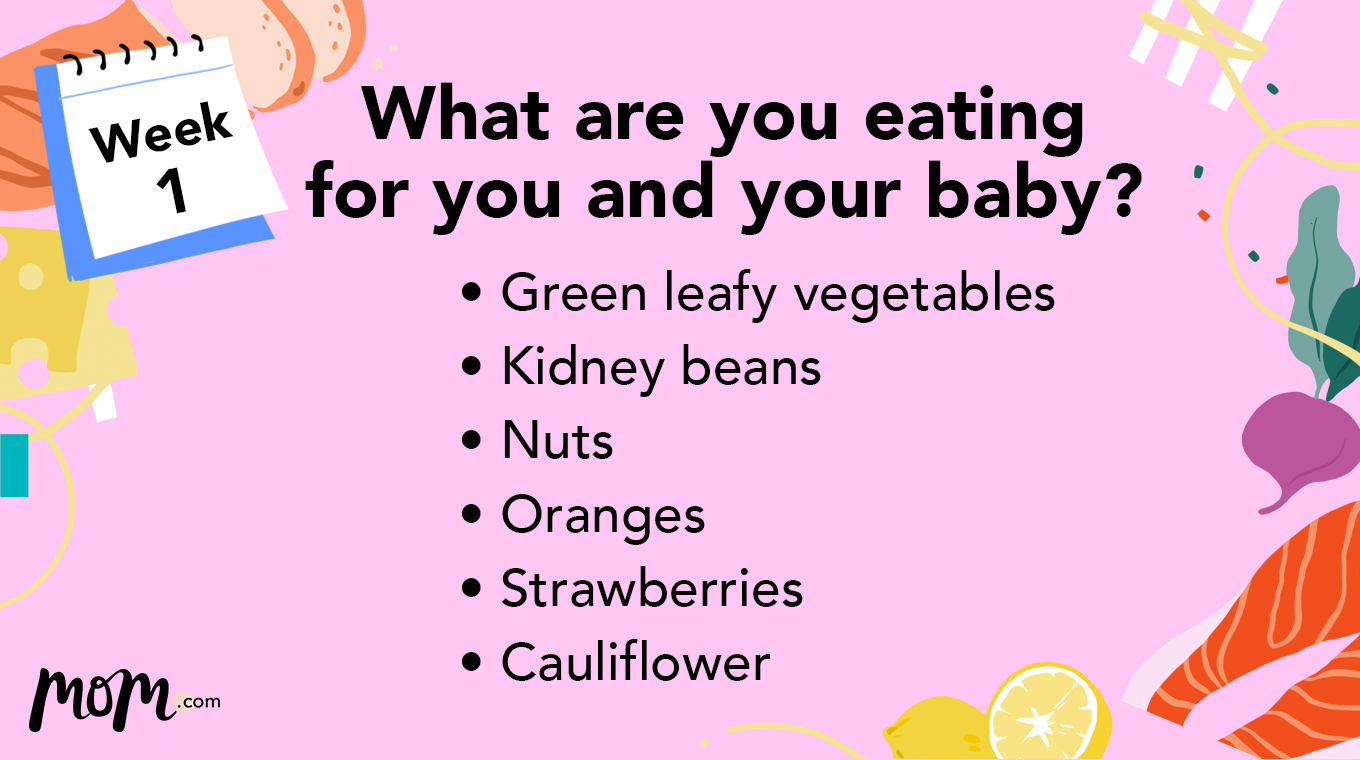
In this article
You’re 1 week pregnant!
Talking about the first month of pregnancy is a little tricky because for the first two weeks of it, you aren’t technically pregnant! As Lizellen La Follette, M.D., ob-gyn at Marin General Hospital in Greenbrae, CA, explains, “Prenatal care providers will date your pregnancy from the first day of your last period, but you are not actually pregnant for those first two weeks because you conceived around days 12–14 after the first day of your period.” Starting the clock on your pregnancy from the first day of your last menstrual period (LMP) is sometimes called your pregnancy’s “menstrual age” or your baby’s “gestational age.”
If you just discovered you’re pregnant, you’re most likely around 4 to 7 weeks pregnant — when most women find out they’re expecting. Feel free to skip ahead to the 4-week mark, or read on for either a quick refresher and perhaps some useful information.

Pregnancy symptoms at 1 week
Remember, at week one, your symptoms of pregnancy are akin to the symptoms of menstruation because you’re not actually pregnant. These symptoms of menstruation will last about 3 to 7 days and can include:
Vaginal bleeding
Prior to menstruation, the uterus lining builds up to prepare for pregnancy. If you are not pregnant, your estrogen and progesterone levels will start falling and your body will begin to shed its uterine lining, resulting in menstrual blood and tissue flowing from your uterus to your cervix and then out your vagina.
Breast tenderness
Due to rising estrogen and progesterone levels prior to menstruation, your milk ducts are stimulated to grow and your mammary glands may swell and enlarge. This may lead to your breasts feeling achy, heavy, lumpy, and extremely uncomfortable.
Mood swings
With your hormones rising and falling, you may experience depression, anxiety, irritability, and mood swings.
Bloating
Once again, these hormones in flux can cause you to retain more water and salt than normal, giving you that bloated feeling.
Fatigue
Once your menses begins, your hormone levels take a nosedive and can result in exhaustion. Plus, for some people, menstruation can cause trouble sleeping — which would contribute to an overall sense of tiredness.
Lower back pain or cramps
Your body will release prostaglandins, which may stimulate uterine and abdominal contractions, resulting in cramps or a pulling feeling in your lower back**.**
Bowel issues
These same prostaglandins may also cause contractions in your bowels, resulting in increased or changed bowel movements such as diarrhea, gas, constipation, or nausea.
Headache
Your fluctuating hormones can also cause headaches and migraines, in part because estrogen increases the levels of serotonin, a neurotransmitter that can set off migraines and headaches.
Your ultrasound
Typically, at 1 week pregnant, you would not get an ultrasound because ultrasounds don’t usually start until week 8 or 9. However, if you have been trying to conceive and seeing a fertility specialist, your doctor may conduct an ultrasound to check for fibroids, to see if your uterine lining is thick enough for possible implantation, or to check the number of follicles in your ovaries (which would grow into eggs). If the specialist finds anything concerning, they may suggest different fertility treatments.
Your pregnant belly at 1 week

Remember, you’re not actually pregnant, so at one week pregnant, your “belly” is probably shedding its uterine lining and forming a new one in preparation of another round of menstruation and getting ready to ovulate.
Pregnancy tips at 1 week
Your most fertile time is during ovulation — but don’t worry if you don’t conceive after your first month of trying. “About 15% to 20% of women will conceive that first month; with 50% of women conceiving by 6 months of trying,” ob-gyn Dr. Mary Jane Minkin told Mom.com.
Generally, people with uteruses ovulate approximately 14 days before the estimated date of their next period, so if you have a 28-day menstrual cycle, the first day of your period is day one and you’ll likely ovulate around day 14 or 15. If your cycle is longer or shorter than 28 days, adjust the ovulation date accordingly.
Regardless of how many days your cycle is, you may want to consider tracking your body’s physical changes (e.g., changes in cervical mucus or basal body temperature) or using an ovulation kit, a calendar, or apps like Period Tracker Period Calendar or Flo Period & Ovulation Tracker.
Your pregnancy checklist at 1 week
This week, you can start preparing your body for pregnancy by doing the following:
- Stop smoking, drinking alcohol, and/or taking drugs
- Stop (or significantly cut down) consuming excessive caffeine (e.g., more than five cups of caffeine a day)
- Check with your medical professional to see if any of your medications or supplements are safe to use during pregnancy or if they may hinder conception
- Consult with your doctor to see if you should get any vaccines, such as for the flu, COVID-19, or whooping cough (T-dap) to protect yourself and your baby
What are you eating for you and your baby?

Your body will need all sorts of nutrients when you are literally growing a fetus, so make sure you eat healthily and add supplements for the nutrients you lack. If you haven’t started prenatal vitamins, now’s the time! Ask your provider about the right supplement for you, and make sure it contains folic acid, a B vitamin that is critical for a healthy central nervous system and brain development. If you prefer to eat your vitamins in the form of food, here are some foods that are rich in folic acid:
- Green leafy vegetables
- Kidney beans
- Nuts
- Oranges
- Strawberries
- Cauliflower
You may also want to get into the habit of upping your fiber consumption. All those hormones we mentioned before can really mess with your digestive system, and constipation is never pleasant — let alone when you’re carrying a baby inside your uterus.
When to call your doctor
The most common reason for which pregnant women call their doctors is bleeding, with a third of pregnant people experiencing some bleeding during the first three months of pregnancy. If that happens, please call your medical professional to determine whether the bleeding is something of concern. In general, about half of the time it ends in miscarriage, and the other half of the time there’s no “bad” reason and the pregnancy proceeds as normal.
According to the Centers for Disease Control and Prevention (CDC), pregnant women are at a higher risk of severe illness from COVID-19 and death compared to non-pregnant women. Furthermore, pregnant people with COVID-19 are at increased risk of delivering a baby before 37 weeks (preterm birth) and other adverse ramifications.
Note: If you are visiting a medical professional during COVID, make sure to ask about the facility’s safety measures and confirm that they are following COVID protocols as indicated by the CDC.
Additional considerations: Diabetes
If you have either Type 1 or Type 2 diabetes, your pregnancy doesn’t have to be high risk if you are proactively managing your blood sugar levels and making healthy choices such as eating nutritious foods and exercising. Consult with your medical professional if you’re considering getting pregnant and follow their recommendations to both help you conceive as well as have a complication-free pregnancy.
Most doctors may recommend you:
- Change medication
- Preemptively treat or plan for the management of diabetes related conditions (e.g., high blood pressure, signs of eye disease) that may be exacerbated by pregnancy
- See specialists (e.g., high-risk obstetrician, registered dietician, diabetes specialist)






